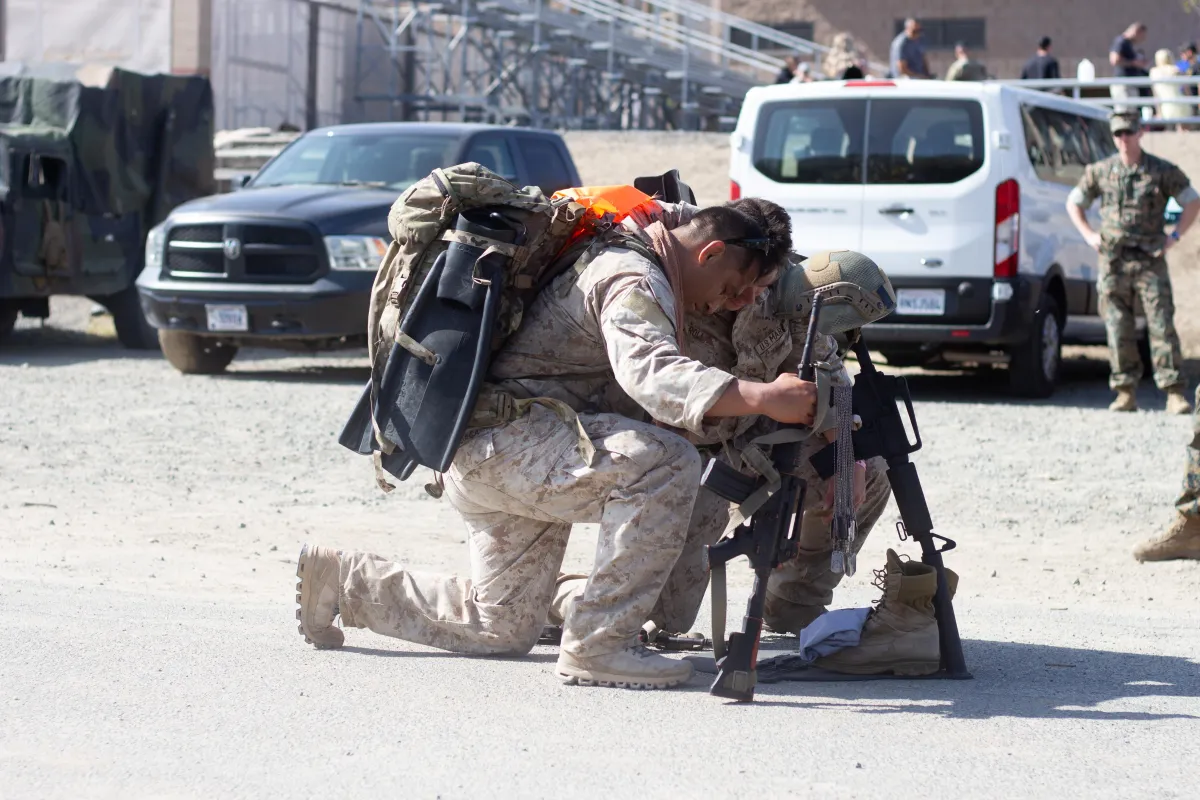
Why Reflection Matters More Than Results: The Omni Athlete Approach
When I was operating as a Recon Marine, after missions, we would conduct debriefs—reflecting on how we could improve and what we learned. At Omni Athlete Training Systems, I view post-event reflection as a skill in itself—just as I did returning from missions. It’s a deliberate practice designed to help you decompress, analyze, and translate your experience into actionable growth.
CrossFit Games. Hyrox. Ultra-marathons. Major BJJ fights or weightlifting meets. No matter the arena, finishing a big event is more than a checkmark—it’s a moment worth celebrating, no matter the outcome. The sense of accomplishment, the adrenaline still pumping, the memories etched in every muscle—it’s all part of being an Omni Athlete.
"If your peace comes from the outcome, then you have already lost. If your peace comes from the process, you already won."
Step 1: Immediate Decompression (Day After Competition)
I’ve been there—wanting to dive deep and pick apart every part of the race, fight, lift, or workout. The problem is, we are often too emotional and not balanced enough with logic. Emotion can mislead you, but logic provides clarity.
Avoid the temptation to relive every moment in the first 12–24 hours. Stop. Pause. Breathe. Your nervous system and emotions need space to reset.
Take 12–24 hours to:
Prioritize sleep, nourishing food, and time with loved ones
Move lightly—walk, stretch, meditate
Step away from competition talk and social media
Anchor this step with a simple, powerful check-in:
“What word best describes how I feel right now?”
"Remember, concussion is a feeling awareness, not a thinking awareness."
This step isn’t about analyzing performance—it’s about allowing your body and mind to land after the intensity of the experience.

Step 2: Event-by-Event Reflection (36 Hours to 3 Days Post Event)
Once your system has settled, start peeling back the layers.
Take walks without devices. Meditate. Engage your senses to bring yourself fully into each moment.
Break the competition into its component parts: starting line to finish line, first fight to last fight, workouts, heats, rounds, or stages.
For each segment, capture three key points:
Execution: What went according to plan? What didn’t?
Mindset: Where was my head before, during, and after?
Learning: What did this reveal about my preparation and adaptability?
Keep it concise—2–3 sentences per segment. Clarity is more powerful than over-analysis. This is about seeing patterns in your performance, not creating a laundry list of wins or mistakes.
Step 3: Daily Reflection (Group by Day or Stage)
Now, zoom out to the rhythm of the competition. Think of this as a 13,000-foot view.
Ask yourself:
Energy: Did I manage sleep, recovery, and fuel well?
Momentum: Did earlier efforts carry me forward, or weigh me down?
Adjustment: Which mid-day or mid-event changes actually worked?
This step highlights a hallmark of the Omni Athlete: the ability to adapt under volume and time pressure. These skills transfer beyond sport into everyday life.

Step 4: Overall Event Reflection (4–7 Days Post Event)
Step back completely. Be honest and logical. This is where granular data becomes insight.
Ask yourself:
Performance Summary: What were your standout strengths? Where were the gaps?
Mindset Summary: How did you handle adversity, pressure, or unexpected challenges?
Preparation Summary: Which parts of training held strong, and what was missing?
Identity: Did you compete the way you wanted to—as both an athlete and a person?
Gratitude & Closure: Who supported you, and what are you thankful for?
At this stage, reflection isn’t about self-critique—it’s about understanding your journey, honoring your effort, and recognizing how far you’ve come. Peace comes not from the outcome, but from valuing the process.
Step 5: Action Planning (1–2 Weeks Post Event)
Reflection without direction is wasted energy. This is the time to look inside, find deeper purpose, and reconnect with your passion.
Distill everything into three priority areas:
Short-Term Focus (next 6–8 weeks): Immediate adjustments—recovery habits, technical fixes, or mindset work
Long-Term Focus (next season): Building blocks—engine development, strength base, or skill acquisition
Sit with your team, discuss lessons learned, and set a plan for the next cycle. This builds a stronger sense of direction, purpose, and passion.
Omni Athlete Reflection Prompts
Writing has been a cornerstone of my growth, personally and professionally. It allows me to remove the noise in my head and create new energy and direction.
Here are prompts I use personally:
What patterns kept showing up across multiple efforts?
Did my recovery systems—food, hydration, sleep, stress management—hold up?
Which qualities separated me from the field, for better or worse?
What three words describe how I competed?
How will this experience change how I train, recover, and prepare?
What am I most proud of?
What unfinished business fuels my next goal or endeavor?

Final Thoughts
For the Omni Athlete, competition is more than testing skills—it’s a transformative journey. Real peace comes from the journey, not the outcome. Each training session and competition is an opportunity to grow—but true growth comes from fully living the experience and reflecting afterward.
Crossing the finish line is just the beginning. True growth happens in quiet reflection afterward.
My reflection habits didn’t start in sports—they began in the brutal reality of war, where survival depended on debriefing, adapting, and reflecting. This mindfulness approach, developed under extreme conditions, is about learning to survive and ultimately thrive.
Reflection goes beyond the athlete—it’s about the human first.
Written by George Briones
